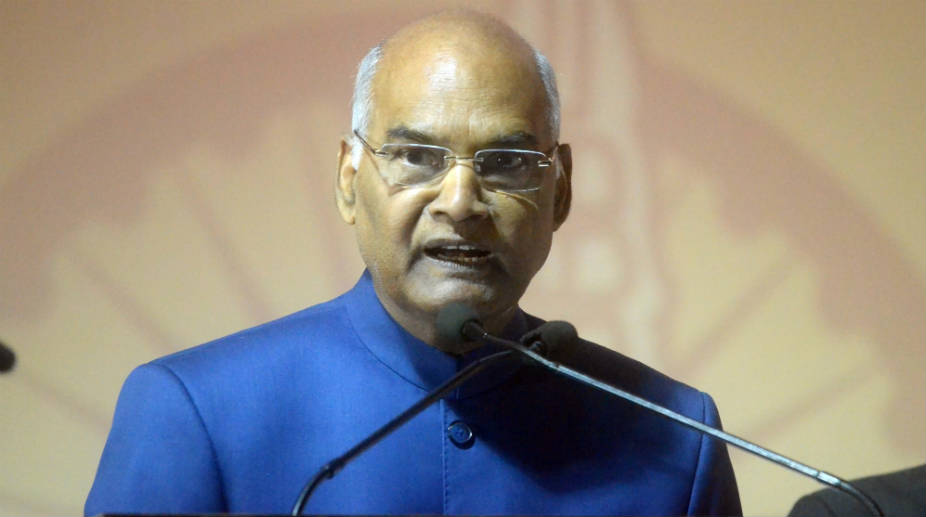Bank cashier shot at by robbers in Jaipur
Police reached the spot on information and rushed the injured cashier Narendra Singh Shekhawat to a private hospital.
President Ram Nath Kovind gave his nod to the Fugitive Economic Offenders Ordinance, 2018 on Sunday. With his assent, the Ordinance, approved by the Union Cabinet on 21 April, got promulgated.

President Ram Nath Kovind. (Photo: Facebook)
President Ram Nath Kovind gave his nod to the Fugitive Economic Offenders Ordinance, 2018 on Sunday. With his assent, the Ordinance, approved by the Union Cabinet on 21 April, got promulgated.
The Union Cabinet had on Saturday approved a proposal of the Ministry of Finance in which it was decided that Indian authorities will be able to attach the properties and confiscate proceeds of crime associated with economic offenders to deter them from evading the process of Indian law by remaining outside the jurisdiction of Indian courts.
The Ordinance was passed in the backdrop of a series of economic offenders fleeing the country and the law.
Advertisement
Under fire for the rising number of absconding high-profile economic offenders such as Nirav Modi and his uncle Mehul Choksi named in the Rs 30,000 crore Punjab National Bank (PNB) fraud case, the Centre had decided to create a special forum for expeditious confiscation of the proceeds of crime, in India or abroad, that would coerce the fugitive to return to India to submit to the jurisdiction of Courts in India to face the law in respect of scheduled offences.
The law makes provisions for a ‘Special Court’ under the Prevention of Money-laundering Act, 2002 to declare a person as a Fugitive Economic Offender.
The Fugitive Economic Offenders Bill, 2018 was introduced in Lok Sabha on 12 March. But the lower house was adjourned sine die and both the Houses of Parliament were prorogued on 6 April 2018.
According to the Ordinance, a Fugitive Economic Offender is a person against whom an arrest warrant has been issued in respect of a scheduled offence and who has left India so as to avoid criminal prosecution, or being abroad, refuses to return to India to face criminal prosecution.
A scheduled offence refers to a list of economic offences contained in the Schedule to the Ordinance. Only those cases where the total value involved in such offences is Rs 100 crore or more is within the purview of the Ordinance.
Proceedings under the law will cease if the Fugitive Economic Offender returns to India and submits to the appropriate jurisdictional Court at any point of time in the course of the proceeding.
Since the proposed law would utilise the existing infrastructure of the Special Courts constituted under under the Prevention of Money-laundering Act, 2002 and the threshold of scheduled offence is high at Rs 100 crores or more, no additional expenditure is expected on the enactment of the Bill.
The Bill is expected to re-establish the Rule Of Law with respect to the Fugitive Economic Offenders as they would be forced to return to India to face trial for scheduled offences. One of the aims is also to help banks and other financial institutions achieve higher recovery from financial defaults committed by such offenders.
The new law is applicable in all the States and districts of the country.
Advertisement